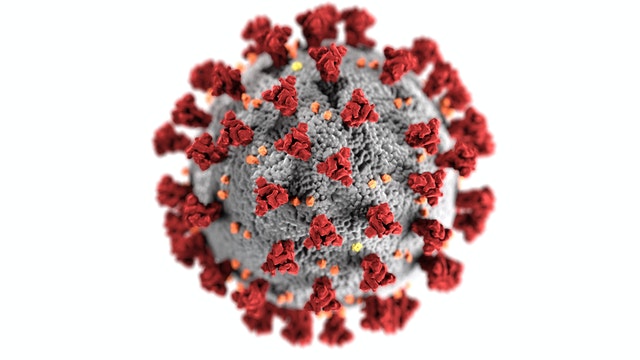

The year 2020 will be remembered as a year in which humanity weathered a dangerous and fast-spreading disease, costing companies and governments billions in management and recovery. Many economic sectors had slowed down or shuttered entirely due to lowered demand and health measures. Large swaths of the population lost their jobs and relied on governmental assistance to survive. The damages caused by the disease are not only economic and physical but also environmental. Indeed, while some control measures have mitigated environmental harm, others have exacerbated it. Over the coming months and years, it will be crucial to recover in a way that is economically and environmentally sustainable.
Contents
Effects on Ecological Factors
While the global economic slowdown reduced major drivers of climate change around the world, the true picture of the pandemic’s effect on our planet’s resources and ecological health is somewhat more nuanced. Throughout the first few months of the pandemic, lockdowns throughout the planet’s major economic powerhouses had rippling effects on emissions of major GHGs (greenhouse gases): in Europe, for instance, the EEA (European environmental agency) found that Nitrogen Dioxide emissions had reduced by 30-60% in March 2020 from the same time the year prior in many major European cities (Upmanis, 2020). While Nitrogen Dioxide is primarily produced by cars(EPA USA, 2016), other pollutants like Carbon Dioxide were on the fall too, with reduced global air travel reducing Carbon Dioxide emissions in the US by 17% (Zogopoulos, 2021). However, not all outcomes have been positive. With the meteoric rise of disposable PPE usage, both medical and non-medical, waste disposal has been a significant ecological issue in some parts of the world, notably in India (Kumar et al., 2020). Researchers further found that with current inventories, PPE bodysuits and gloves have a high potential for global warming, and the metal strips used in facemasks have a potentially high risk to human health.

Figure 1. Positive and Negative Impacts of the Pandemic on the Environment
Source:Rume, T. and Islam, S., 2020
A Closer Look: Work from Home
As most modern office workers can attest to, the past year has been characterized by a significant shift to remote routines. Individuals who would regularly commute to the office, often individually in their automobiles, have quickly transitioned to technologies like video meetings, cloud-based software and a litany of other collaboration tools. As mentioned, emissions of Nitrogen Dioxide fell dramatically throughout the pandemic: it is theorized that this was largely due to the reduction of regular automobile commutes(Turits, 2020). WSP, a London-based engineering consulting firm, conducted a study regarding the actual footprint of this work-from-home alternative (WSP, 2020). By considering both the impacts of the commute of the average employee, of whom 65% travel by car, and of the employee’s home heating system, the firm found that in some cases remote work could increase the employee’s carbon emissions by nearly 70%. Notably, an employee heating their entire home during regular working hours would emit significantly more GHGs than one who only heated their office. However, in the summer months, where building heating was not required, the study suggests that workers may save significant emissions by avoiding their daily commute. While this study was localized to the UK, and some factors may not apply elsewhere (such as the need for air conditioning), this provides valuable insight for companies to consider once sanitary measures do not require employees to work from home.

Figure 2. Work-from-home Emissions
Source:WSP, 2020
The Role of Global Economies
Clearly, by most accounts the world now finds itself at a crossroads; with economies globally beginning to kick back into some level of activity, and with most of the developing world likely having the potential to return to normal levels by the end of this year, there is a unique opportunity to take a great “green” stride. Some nations, indeed, have taken steps towards this during the pandemic; the European Green Deal, proposed in 2019, will take significant consideration of renewable energy and carbon reduction in the implementation of monetary recovery instruments (OECD, 2020). Similarly, South Korea’s Green New Deal commits billions of US dollars to boosting their renewable energy capacity and began in the early days of COVID in July 2020. Inertia, in the industrial and market sense, is an important factor for governments to shape policy; with a restart of action in various sectors, the possibility to begin and maintain inertia with the development and commissioning of new green power plants and industrial processes, as well as sustainable urban development, is at an all-time high.

Figure 3. Strategies for Environment Sustainability
Source:Rume, T. and Islam, S., 2020
References
EPA USA, 2016. Basic Information about NO2 | US EPA. [online] US EPA. Available at: <https://www.epa.gov/no2-pollution/basic-information-about-no2> [Accessed 28 March 2021].
Zogopoulos, E., 2021. COVID-19: The Curious Case of a Green Virus. [online] Energy Industry Review. Available at: <https://energyindustryreview.com/analysis/covid-19-the-curious-case-of-a-green-virus/> [Accessed 28 March 2020].
Kumar, H., Azad, A., Gupta, A. et al. COVID-19 Creating another problem? Sustainable solution for PPE disposal through LCA approach. Environ Dev Sustain (2020). <https://doi.org/10.1007/s10668-020-01033-0>[Accessed 28 March 2021].
Bashir, M., MA, B. and Shahzad, L., 2020. A brief review of socio-economic and environmental impact of Covid-19. [online] SpringerLink. Available at: <https://link.springer.com/article/10.1007/s11869-020-00894-8> [Accessed 29 March 2021].
Cox, A., Prag, A. and Piccolo, A., 2020. Making the green recovery work for jobs, income and growth. [online] OECD. Available at: <http://www.oecd.org/coronavirus/policy-responses/making-the-green-recovery-work-for-jobs-income-and-growth-a505f3e7/?fbclid=IwAR1Gr8TPGRk69v86VB9kkPJnVPN12eArVyohmY-FV_OtLK1v9kMKOe0Hv2I> [Accessed 29 March 2021].
Henriques, M., 2020. Will Covid-19 have a lasting impact on the environment? [online] Bbc.com. Available at: <https://www.bbc.com/future/article/20200326-covid-19-the-impact-of-coronavirus-on-the-environment> [Accessed 29 March 2021].
Mofijur, M., Fattah, I., Alam, M., Islam, A., Ong, H., Rahman, S., Najafi, G., Ahmed, S., Uddin, M. and Mahlia, T., 2021. Impact of COVID-19 on the social, economic, environmental and energy domains: Lessons learnt from a global pandemic. [online] PMC. Available at: <https://www.ncbi.nlm.nih.gov/pmc/articles/PMC7556229/> [Accessed 28 March 2021].
Nicola, M., Alsafi, Z., Sohrabi, C., Kerwan, A., Al-Jabir, A., Iosifidis, C., Agha, M. and Agha, R., 2020. The socio-economic implications of the coronavirus pandemic (COVID-19): A review. [online] ScienceDirect. Available at: <https://www.sciencedirect.com/science/article/pii/S1743919120303162?casa_token=XbapnwVgkaQAAAAA:5csh7YOgPFZjmiN74gudJ3cVGPCeQH3wDUOSepVr69rnPHit0hY_ok0Iog9QjfsxWyxHFUHFGdk> [Accessed 26 March 2021].
Rume, T. and Islam, S., 2020. Environmental effects of COVID-19 pandemic and potential strategies of sustainability. [online] PMC. Available at: <https://www.ncbi.nlm.nih.gov/pmc/articles/PMC7498239/> [Accessed 27 March 2021].
Upmanis, K., 2020. Air Pollution goes down as Europe takes hard measures to combat virus. [online] European Environment Agency. Available at: <https://www.eea.europa.eu/highlights/air-pollution-goes-down-as> [Accessed 29 March 2021].
Turits, M., 2020.Why working from home might be less sustainable.[online] BBC Beyond the 9-to-5. Available at:<https://www.bbc.com/worklife/article/20200218-why-working-from-home-might-be-less-sustainable>[Accessed 28 March 2021].
WSP, 2020.Office vs Home Working: How we can save our carbon footprint[online] WSP Insights. Available at: <https://www.wsp.com/en-GB/insights/office-vs-home-working-how-we-can-save-our-carbon-footprint>[Accessed 28 March 2021].
OECD, 2020. Making the green recovery work for jobs, income and growth. [online] OECD Policy Responses to Coronavirus (COVID-19). Available at: <http://www.oecd.org/coronavirus/policy-responses/making-the-green-recovery-work-for-jobs-income-and-growth-a505f3e7/>[Accessed 28 March 2021].



